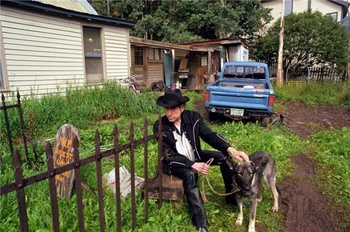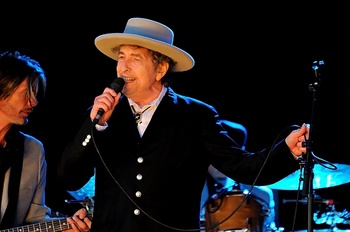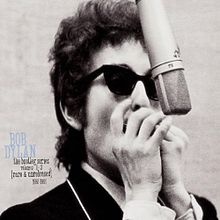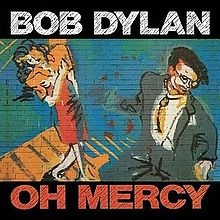Bob Dylan's 'Jokerman' - an analysis - Part 3
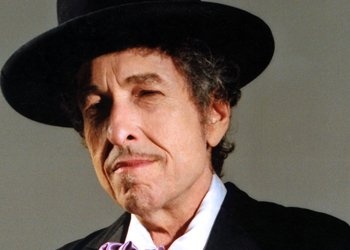
In this article we take a closer look at the second stanza of this song.
‘So swiftly the sun sets in the sky
You rise up and say goodbye to no one
Fools rush in where angels fear to tread
Both of their futures, so full of dread, you don't show one
Shedding off one more layer of skin
Keeping one step ahead of the persecutor within’.
‘So swiftly the sun sets in the sky, you rise up and say goodbye to no one’. These words seem rather obscure and hard to unravel. The setting sun is of religious significance within Judaism. Sunset is the time for the evening prayers to start; sunset marks the transition to, or from, the Sabbath or any other holiday. Sunset is the time for a Jewish ritual called ‘Havdalah’ which takes place at the end of Shabbat. Some analysts see the Jokerman mocking this ritual by not taking part in it and breaking up the community of this ritual without even saying goodbye. This explanation however, seems a little farfetched. There is more likelihood in assuming that the Jokerman again wears the cloak of Jesus. Although his coming to the earth was predicted by the prophets, Jesus suddenly appeared in public life and only after a few years he was crucified at the age of 33 but he rose from the dead. Prior to his crucifixion he was abandoned by everyone, even by his closest disciples. (Mat. 26:56). ‘So swiftly the sun sets in the sky’ may also be a vague reference to the ‘darkness at the break of noon’, the three hours of darkness which fell all over the land during the crucifixion of Jesus and which is described in Matthew 27:45. But the best explanation of the words ‘you rise up and say goodbye to no one’ seems to be found in the story of the ascension of Jesus into heaven as pictured in the book of Acts, Chapter 1:9-11: “After saying this, he (Jesus) was taken up into a cloud while they were watching, and they could no longer see him. As they strained to see him rising into heaven, two white-robed men suddenly stood among them. “Men of Galilee,” they said, “why are you standing here staring into heaven? Jesus has been taken from you into heaven, but someday he will return from heaven in the same way you saw him go!” From these words we learn that Jesus did not really say goodbye to his disciples, nor to the world for that matter, in fact the disciples were quite taken by surprise by the scene of the ascension which took place before their very eyes. Jesus just rose up and disappeared on a cloud.
‘Fools rush in where angels fear to tread, both of their futures so full of dread, you don't show one’ 'Fools rush in...' is a precise quote from the English poet Alexander Pope's ‘An essay on criticism’, 1709, where it reads: “No Place so Sacred from such Fops is barr'd, nor is Paul's Church more safe than Paul's Church-yard: Nay, fly to Altars; there they'll talk you dead; for Fools rush in where Angels fear to tread’. A number of writers like Edmund Burke, Thomas Hardy, E.M. Forster and James Joyce have repeated this quotation in their literary works. The expression also has some Biblical connotation and Alexander Pope may well have been inspired by this. The book of Jude first speaks of wicked angels ‘who did not stay within the limits of authority God gave them but left the place where they belonged. God has kept them securely chained in prisons of darkness, waiting for the great Day of Judgment. (verse 6).But there are also good angels like Michael, the archangel and his companions, who act in a very prudent way. Michael has fear to judge and fears to tread in field of Judgment which only belongs to God. We read: ‘Michael did not dare accuse the devil of blasphemy, but simply said, “The Lord rebuke you!” (This took place when Michael was arguing with the devil about Moses’ body.) No matter how prudent and full of fear Michael the angel is, in the book of Jude we see ‘Fools rush in’ ready to ‘scoff at things they do not understand. Like unthinking animals, they do whatever their instincts tell them, and so they bring about their own destruction’ (verse 10).
Now Dylan goes on to say that ‘both of their futures so full of dread’ indicating that not only the future of the ‘fools’ but also the future of the ‘angels’ is full of dread, both the fools and the wicked angels are in great fear of impending evil, in the same way as Shakespeare wrote: ‘The dread of something after death’. However, the word ‘dread’ has also a more positive meaning. ‘Dread’ may also mean: reverential or respectful fear, awe. We see both meanings of the word reflected in the book of Jude and also incorporated the Jokerman. On one hand we see the wicked angels, chained in the prisons of darkness, waiting for the great Day of Judgment, and they are full of dread for this day. We also see the fools and the book of Jude says of the fools and the scoffers: ‘Woe to them!’’ (verse11). The fools and the wicked angels have every reason to be full of dread for the future. But on the other hand, there is Michael, the good angel, he is also full of dread, but he is dreadful in a positive way, he is full of respect and awe for God.
The Jokerman is an ambiguous character, therefore it now says: ‘You don’t show one’, the Jokerman does not show which kind of dread he inhabits. He does not show his evil intentions. He looks like an angel of light, in the same way as Satan does (2 Corinthians 11:14: ‘even Satan disguises himself as an angel if light’’).
‘Shedding off one more layer of skin’ makes the Jokerman hard to detect. The Jokerman looks like a chameleon which changes color all the time, the Jokerman is a person who changes opinions, ideas, or behavior to suit the prevailing social climate; an opportunist.
Reptiles, like snakes, shed off their skins. The snake, the serpent, is in the Bible the equivalent of the devil, the Satan. The devil, in the shape of a serpent, stealthily comes to Adam in the Garden of Eden to tempt Adam to disobey God’s commandment. Therefore, when it says ‘Shedding off one more layer of skin’ Dylan once again deposits the Jokerman in the realm of Satan and of all evil but the Jokerman does so in a disguised way with the purpose of ‘keeping one step ahead of the persecutor within’. Kevin Bloom applies this couplet to Dylan personally as if Dylan were the Jokerman himself and writes: “And if there’s any couplet to quote back at him, any piece of rhyming verse that could conceivably be inscribed as an epitaph on his tombstone, it’s from the biblical track “Jokerman,” specifically the last two lines of the second verse: “Shedding off one more layer of skin/ Keeping one step ahead of the persecutor within.”. Somehow Kevin Bloom’s interpretation just does not feel right. His interpretation is too negative; it does not fit in with Dylan. Although over his career Dylan has had a wide variety of styles, he has often been the opposite of a chameleon. As said a chameleon changes opinions, ideas or behavior to suit the prevailing social climate. But Dylan has always ventured to act against popular culture and public opinion, making turns where nobody would expect him to do so. In many ways Dylan is the opposite of an opportunist.
‘A persecutor’ is someone who torments other people, he is a tormentor. When this persecutor is ‘within’ you, it means that your own body and your own mind is torn apart by this persecutor .No matter how defiled demons can be, and no matter how much relish demons take in doing evil and setting up wicked schemes, there is always a persecutor inside these devils and demons which tells their conscience that what they are doing is wrong and this voice torments and destructs them as long as they exist. Satan himself has this self-destructive power, this tormentor, within him. This self- destructive power is, however, restrained by his will to do as much evil as he can, till at last, at the Latter Day, the game is finally over. Through metamorphoses – shedding off layers of skin - Satan is able to avoid not only detection but also avoid total destruction and annihilation and to start all over again in a new deceptive body. In this way Satan always keeps one step ahead of the persecutor, the destructive power, within him. We see these satanic metamorphoses throughout the Bible and specifically in the Book of Revelation. In chapter 12 the devil is first pictured as a great red dragon (verse 3) and next as a serpent (verse 15) and in chapter 13 as a beast with ten horns and seven heads. But in the end the devil – the Jokerman – will not be able to keep one step ahead. We see the devil – and his incarnations the Beast and the false prophet – thrown into the lake of fire and sulphur were they will be forever tormented. The persecutor, the tormentor, will end up being persecuted and tormented (Rev. 20:10).Justice will get the better of him in the end.


